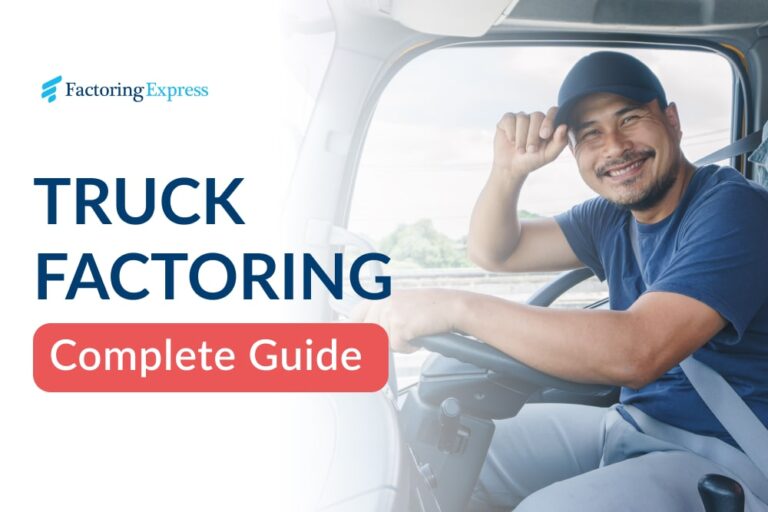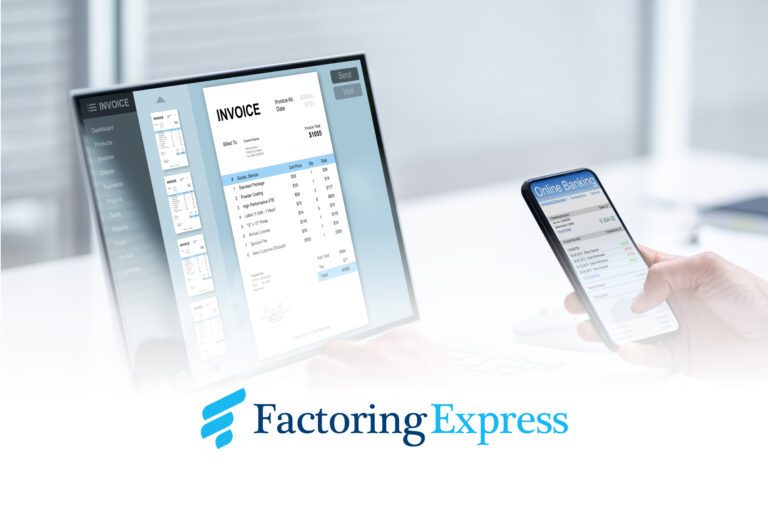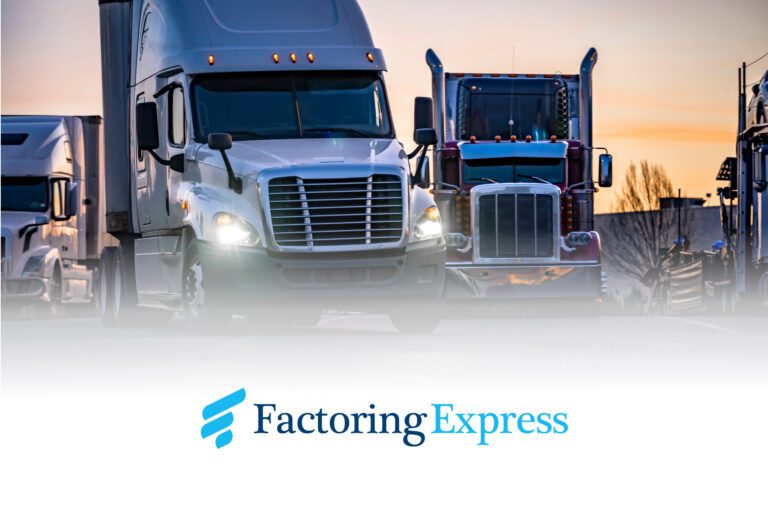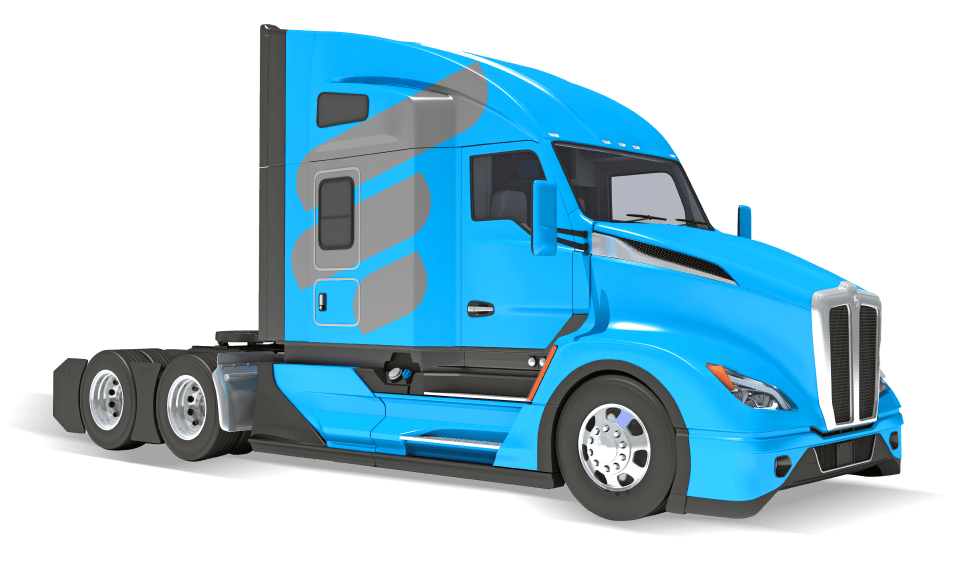Trucking entrepreneurs know that the cost of fuel, maintenance, and repairs can quickly eat through their cash flow. Worse, some shippers and brokers take weeks to pay, forcing trucking companies to go out-of-pocket with expenses. Good thing trucking company owners can take advantage of truck factoring.
Truck factoring can save your business in a cash crunch. Unlike bank loans, factoring offers funding without interest and tedious paperwork.
In this post, you’ll learn more about this service and how it can transform your company’s cash flow. Read on to get started!
What is truck factoring?
Truck factoring, also known as freight factoring, allows you to get your invoices paid fast. Instead of waiting for up to 90 days, a factoring company will purchase your invoices at a discounted price.
Many companies like Factoring Express offer up to 97% advances for your factored invoice. This gives you instant funding to cover fuel, maintenance, repairs, insurance, and other operating costs.
This influx in cash flow also translates to a steady working capital that will allow trucking companies to stay on the road.
Moreover, truck factoring is indispensable since most freight invoices rarely get paid immediately. In most cases, these invoices will take at least 40 days to be fully settled.
Take note that factoring is not a form of loan or debt. You’re not borrowing money; you’re selling your invoices while the factoring company takes a cut from the price.
How factoring works for truckers
Factoring is less intimidating than it sounds. The process is way simpler than bank loans, so every trucker can easily avail it for their fleet.
Here’s the step-by-step process of how factoring works for truckers:
Step 1. You deliver your load.
First, you have to deliver your shipment to qualify for factoring. However, you should remember that factoring only applies to loads that are signed to your Motor Carrier (MC) number.
Loads leased into a different MC number won’t be covered by factoring. Overall, the shipment should be delivered under your name and registration.
Step 2. You receive an invoice.
Once you successfully delivered the shipment, you’ll generate an invoice for the client. This is where factoring comes in.
In the trucking industry, it’s normal for freight invoices to take up to 40 days to be fully paid. Even in good economic times, this waiting period will negatively affect the trucking company’s cash flow.
It puts a financial burden on owner-operators. And since their business has to keep rolling, many owners must go the extra mile with out-of-pocket expenses.
Instead of struggling the same way, you can proceed to the next step.
Step 3. You send the invoice to a factoring company.
You can sell your aging invoices to a factoring company like Factoring Express. We will advance your invoice for up to 97% of its total value.
Simply submit your signed bill of lading and invoice, and our team will process your request.
For this part, we check your client’s credit score to see if they are in good financial standing. Once we assess your client’s risk level, we will draft a proposal for you.
Step 4. You receive the funds.
You’ll receive a factoring proposal based on your invoice value and client risk. If you’re happy with the offer, simply sign the paperwork and send it back to the factoring company.
In less than 24 hours after completing the paperwork, you’ll receive the funds in your account. It’s straightforward, no-fuss, and faster than any bank offers you may get.
In most cases, we will hold a small reserve while we collect from your client. Once we settle the invoice, we will take our fee and send you the remaining balance.
Step 5. The factoring company collects from your client.
After you receive the funds, the factoring company performs soft collection from your client. You basically transfer the collection responsibility to the factoring company, so you don’t have to chase payments.
At Factoring Express, we have a team of billers and collectors who will take over your invoice. We bridge the gap between completing a load and receiving payment for it.
But what happens if the client doesn’t pay and the factoring company fails to collect? This is where the two types of truck factoring come in.
Types of truck factoring
There are two major types of truck factoring, which mainly differs in their terms. It’s important to know this before signing the paperwork.
Recourse
Recourse factoring keeps you liable if the client or shipper fails to pay within a specific period. Under these terms, you’ll pay back the cash advance and lost fees.
However, it doesn’t mean you have to pay in cash directly. Some factoring companies allow you to replace the bad invoice with a fresh one or debit reserves of your other invoices.
- More affordable fees compared to non-recourse factoring
- Fast approval process
- Minimized risk since factoring companies perform credit checks on shippers/brokers.
- You’re still liable for any unpaid invoices.
- It could eat through your cash flow if a large invoice were unpaid.
Non-recourse
With non-recourse factoring, you’ll keep the advance payments whether the client pays or not. This offers better protection for trucking companies against non-payment.
However, non-recourse factoring isn’t absolute. If the cause of non-payment is a dispute, recourse and non-recourse factoring won’t offer any protection.
Nevertheless, factoring companies often have qualifying credit reasons. One of the most common is when a client or shipper declares insolvency/bankruptcy.
For example, if the shipper declares bankruptcy within 90 days of invoice purchase, you won’t be asked to repay the advances under non-recourse terms.
However, if your client goes bankrupt and your invoice is under recourse terms, you still have to pay the factoring company back.
- Better protection against specific types of non-payments
- It allows you to offer payment terms to clients.
- Fast application process
- The fees are much higher compared to recourse factoring
- Approval rates are slightly lower
Again, it’s essential to consider these two factoring types before getting an advance for your freight invoices. Always consider the best interest of your trucking business.
Types of freight covered by factoring
Almost all types of hauls can be factored. However, it still depends on the factoring company rules.
On the upside, all trucking business sizes, regardless of experience, can avail of factoring services. The following are usually covered by truck factoring:
- General freight
- Oil and gas
- Sand hauls
- Tankers
- Hazmat loads
- Liquids
- Refrigerate freight
Take note that the risk associated with the load type isn’t a major factor for factoring companies. Even if you’re hauling hazmat shipments, what matters is that your client has a good credit reputation.
Do I need factoring for my trucking business?
Factoring isn’t a requirement to run your trucking business. Many get by without this service, but that’s exactly the problem – they are just getting by.
Whether you’re new to the industry or have been on the road for years, freight factoring has benefits to offer.
Here are some reasons why trucking companies often work with factoring companies:
Guaranteed cash flow
The main benefit of factoring is it secures your business’ cash flow. It eliminates the guessing game about when your client will settle the invoice.
This means you’ll have enough funds for fuel, maintenance, repairs, and other operational expenses. Such a benefit is crucial to ensure that your business will run smoothly.
Reduced stress
With easy cash access through factoring, trucking companies will have one less thing to think about. It reduces their worries about funding since factoring pays the invoice within 24 hours.
There’s no need for you to take time off the road just to chase payments. A factoring company will do it for you by advancing your payments.
Accommodate more loads
A consistent cash flow allows trucking companies to haul more loads. This means you can hire more drivers, purchase new trucks, and grow your business.
Aside from providing instant funds, factoring also reduces your accounting workload. You no longer have to spend hours making follow-up calls or chasing collections. This convenience gives more time and funds to take on more jobs.
Bounce back from bad debt
Many trucking companies fall into bad debt when clients take weeks or months to pay. Factoring can prevent this from happening.
Instead of taking out another loan, you can sell your idle invoices to a factoring company instead. This way, it will get paid fast without any interest or exorbitant fees.
Also, the factoring proc ess is simple and doesn’t require tedious paperwork like bank loans.
Get started with truck factoring today!
With factoring, you don’t have to dig into your own pocket to fund your trucking business. Factoring Express can help you with instant funds within 24 hours instead of waiting for up to 90 days.
We have a deep knowledge of the trucking industry, and we know what your business needs. Contact us anytime, and our team will be happy to discuss your options. Sign up today to secure your cash flow!




